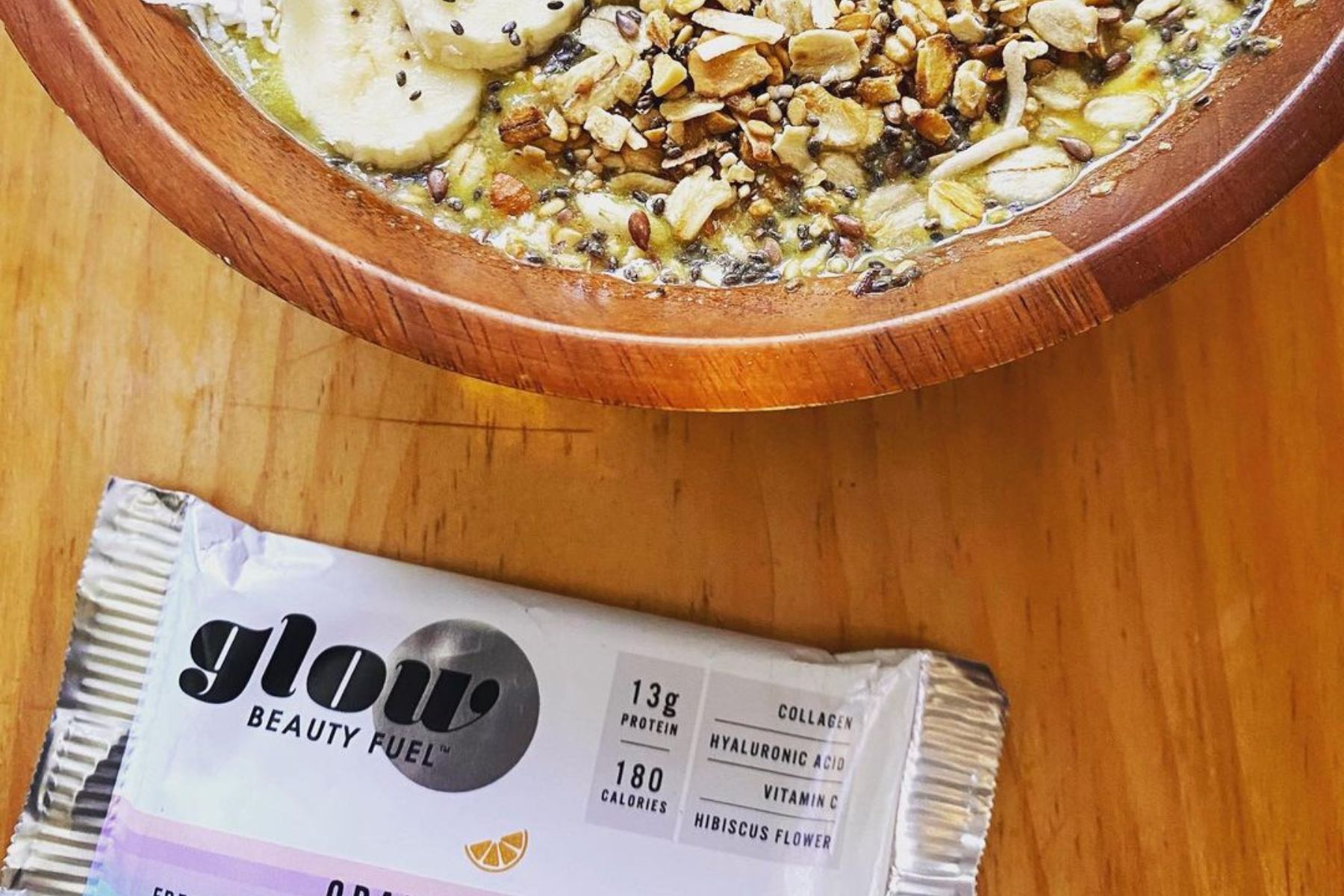Colostrum, often dubbed as “nature’s first food,” is the initial form of breast milk produced by mammals, including humans, immediately following the birth of their offspring. This nutrient-rich substance is not just crucial for newborns but has also found its way into skincare, especially for sensitive skin. Packed with essential nutrients, antibodies, and growth factors, colostrum offers a unique composition that is gentle yet highly effective for delicate skin types.
Sensitive skin, characterized by its susceptibility to irritation, redness, and discomfort, often requires special care. This is where colostrum for sensitive skin comes into play. Its natural composition is not only gentle but also immensely beneficial.
Immunoglobulins in Colostrum: Natural Protection for Sensitive Skin
Immunoglobulins are a group of proteins present in colostrum that play a critical role in the body’s immune response. When it comes to skincare, these immunoglobulins offer a protective barrier against environmental stressors and pathogens that can aggravate sensitive skin. This makes immunoglobulins in skin care an essential consideration for those with a predisposition to skin sensitivities and conditions. They help in fortifying the skin’s natural defenses, allowing it to better withstand external irritants and maintain its health and integrity.
For individuals with compromised skin barriers, such as those suffering from dryness, cracking, or conditions like eczema, colostrum’s immunoglobulins can be a game-changer. They not only offer protection but also aid in repairing and strengthening the skin barrier. This restoration is crucial in managing skin conditions with colostrum, as a strong skin barrier is key to reducing sensitivity and improving the skin’s overall health. The immunoglobulins in colostrum help to reinforce the skin’s natural defenses, making it more resilient against irritants and less prone to reactions.
Immunoglobulins in colostrum are adept at combating various pathogens, including bacteria, viruses, and fungi, antibacterial and antiviral properties make them particularly effective in maintaining the health of sensitive skin. This aspect is crucial for those whose skin is prone to infections or inflammatory reactions. By providing a natural shield against these harmful agents, immunoglobulins in skin care not only soothe existing skin issues but also prevent new ones from arising. Their ability to maintain a balanced skin microbiome is essential in ensuring long-term skin health and resilience.
Recent scientific studies have shed light on the effectiveness of colostrum’s immunoglobulins in enhancing skin health. These studies highlight how these proteins aid in reducing inflammation, a common issue in sensitive skin conditions. Additionally, research has shown that immunoglobulins in skin care can accelerate the healing of skin wounds and lesions, making them a potent ingredient for those dealing with chronic skin conditions like eczema or psoriasis. The evidence supporting the benefits of colostrum’s immunoglobulins in maintaining and restoring skin health is growing, making it a promising natural remedy in the skincare world.
Growth Factors in Colostrum: Aiding Skin Healing and Regeneration
Growth factors in colostrum play a pivotal role in skin cell renewal and regeneration. These naturally occurring proteins stimulate cell growth, which is essential for repairing damaged skin and maintaining a youthful appearance. In sensitive skin, where damage and irritation are more frequent, the growth factors for skin healing found in colostrum can significantly accelerate the repair process. They encourage the production of new cells, aiding in the rapid recovery of the skin from various forms of damage, such as sunburn, abrasions, or the effects of aggressive skincare treatments.
Colostrum is not just beneficial for sensitive skin but also for aging skin. Its growth factors have shown remarkable potential in reducing the appearance of fine lines and scars. These proteins promote the synthesis of collagen and elastin, essential components for skin elasticity and firmness. This ability makes colostrum a valuable ingredient in anti-aging skincare. Regular application of products containing colostrum and skin hydration properties can result in smoother, more youthful-looking skin, making it a sought-after component in natural anti-aging treatments.
Inflammatory skin conditions, such as eczema and psoriasis, can significantly benefit from the healing properties of colostrum’s growth factors. These factors have anti-inflammatory properties that help soothe irritated skin, reduce redness, and alleviate discomfort. For individuals seeking natural remedies for skin irritation, colostrum presents a gentle yet effective option. Its ability to enhance the skin’s natural healing process makes it an excellent choice for those with chronic skin conditions, helping to manage symptoms and improve overall skin health.
Enhancing Skin Hydration and Integrity with Colostrum
Colostrum offers exceptional hydrating properties, making it a beneficial ingredient for dry and sensitive skin types. The natural fats and proteins in colostrum help to lock in moisture, keeping the skin hydrated and supple. This aspect of colostrum and skin hydration is particularly important for those who struggle with dry, flaky skin, as it provides the necessary nourishment and moisture to maintain a healthy skin barrier. By incorporating colostrum into skincare routines, individuals can enjoy a noticeable improvement in their skin’s hydration levels, leading to a more radiant and healthy complexion.
Colostrum not only hydrates but also plays a crucial role in maintaining skin integrity. It strengthens the skin’s natural barrier, protecting it from environmental aggressors and preventing moisture loss. This reinforcement is vital for sensitive skin, which is more prone to damage and dehydration. By enhancing the skin’s resilience, colostrum helps preserve its health and vitality, making it an indispensable ingredient in skincare for maintaining long-term skin integrity.
Comparative studies have illustrated the superiority of colostrum in skin hydration over other common skincare ingredients:
- Colostrum vs. Hyaluronic Acid: While hyaluronic acid is known for its hydrating properties, colostrum provides not only hydration but also nourishment and immune-boosting benefits.
- Colostrum vs. Glycerin: Glycerin is a common humectant in skincare, but colostrum offers a broader range of benefits, including enhanced skin barrier function and anti-inflammatory properties.
- Colostrum vs. Ceramides: Ceramides are key for barrier function; however, colostrum’s natural growth factors additionally promote skin healing and regeneration.
These comparisons highlight colostrum’s unique advantages in skin care, especially in terms of hydration and overall skin health. Its multifaceted benefits make it a standout ingredient for those seeking comprehensive skincare solutions.
Topical Colostrum Treatments for Eczema and Psoriasis
Eczema, a common skin condition characterized by itchy, inflamed patches, can significantly benefit from the soothing properties of colostrum. The anti-inflammatory and healing components in colostrum provide much-needed relief to eczema sufferers. Its application as a topical treatment helps reduce the redness and itchiness associated with eczema, making it a valuable addition to the regimen of those seeking colostrum for eczema relief. Unlike some conventional treatments that may have harsh side effects, colostrum offers a gentler, more natural approach to managing eczema symptoms, improving skin condition without aggravating it.
Psoriasis, another chronic skin disorder marked by red, scaly patches, also responds well to colostrum treatments. The rich blend of nutrients and growth factors in colostrum aids in soothing irritated skin and reducing the severity of psoriatic lesions. For individuals dealing with psoriasis, incorporating topical colostrum treatments can lead to noticeable improvements. These treatments help in balancing the skin’s immune responses, thereby reducing the frequency and intensity of psoriasis flare-ups. This natural approach to managing psoriasis highlights colostrum’s versatility and effectiveness in addressing various skin conditions.
The effectiveness of colostrum in treating skin conditions like eczema and psoriasis can be maximized through proper application techniques. Topical colostrum products should be applied to clean, slightly damp skin to enhance absorption. Gentle massaging motions help in evenly distributing the product and promoting penetration into the deeper layers of the skin. For those using topical colostrum treatments, it’s important to apply them consistently as part of their daily skincare routine. This consistency ensures that the skin continually receives the soothing and healing benefits of colostrum, leading to better management of skin conditions over time.
Individuals with persistent skin issues like eczema and psoriasis have reported significant improvements in their skin condition after using colostrum-based products. These success stories often highlight reduced redness, alleviated itching, and improved skin texture. The experiences of those who have found relief through colostrum for eczema relief and psoriasis management are a testament to its potential as a powerful, natural solution for challenging skin conditions. These real-life cases add credibility to the growing body of research supporting colostrum’s role in skin health and rejuvenation.
Integrating Colostrum into Skincare Routines for Sensitive Skin
Integrating colostrum into a daily skincare routine can be highly beneficial for sensitive skin, but it’s important to do so thoughtfully. Start by introducing colostrum products slowly, allowing your skin to adjust. A patch test is recommended to ensure there are no adverse reactions. Then, progressively increase the usage as your skin becomes more accustomed to it. Ideally, colostrum-based products should be applied after cleansing and before moisturizing to maximize absorption. Consistency is key; regular use of colostrum products for sensitive skin is crucial in seeing noticeable improvements in skin health and resilience.
When choosing colostrum products for sensitive skin, look for formulations specifically designed for this skin type. Products should be free from harsh chemicals, fragrances, and dyes that could potentially irritate sensitive skin. Opt for pure, high-quality colostrum products, ideally with minimal additional ingredients. This focus on simplicity ensures that the skin reaps the full benefits of colostrum without the risk of irritation from unnecessary additives. Colostrum for sensitive skin should be a key component of any sensitive skin care regimen, aimed at nourishing and strengthening the skin gently and effectively.
Every individual’s skin is unique, and as such, the use of colostrum should be tailored to each person’s specific needs. Some may benefit from daily application, while others might need to use it less frequently. Pay attention to how your skin reacts and adjust accordingly. If you experience any discomfort or irritation, reduce the frequency of application. The goal with incorporating colostrum in skincare is to achieve a balance that supports your skin’s health without causing stress or irritation.
Colostrum can be effectively combined with other skincare ingredients for enhanced benefits. However, it’s important to do so wisely. Here’s a numbered list of recommendations for combining colostrum with other skincare ingredients:
- Hyaluronic Acid: This ingredient pairs well with colostrum for enhanced hydration.
- Vitamin C: Use alongside colostrum for added antioxidant protection and skin brightening.
- Ceramides: Enhances the barrier-strengthening properties of colostrum.
- Peptides: Work synergistically with colostrum to promote skin elasticity and firmness.
- Avoid Harsh Exfoliants: Steer clear of strong chemical exfoliants or retinoids that might over-stress sensitive skin when used with colostrum.
By following these guidelines, you can maximize the benefits of colostrum in skincare, creating a regimen that supports and enhances your skin’s natural health and beauty.
Choosing the Right Colostrum Products for Sensitive Skin
Selecting the right colostrum products for sensitive skin requires careful consideration. It’s important to prioritize products that are specifically tailored for sensitive skin types. Look for formulations that are hypoallergenic and non-comedogenic to avoid clogging pores or triggering allergic reactions. Additionally, choosing products with a higher concentration of colostrum can offer more potent benefits. It’s also beneficial to consider the source of the colostrum, opting for ethically sourced and sustainably produced options, which often indicate higher quality and purity.
Navigating the labels and ingredient lists of skincare products can be challenging, but it’s crucial for those with sensitive skin. Pay close attention to the list of ingredients, ensuring that colostrum is listed among the first few components, which suggests a higher concentration in the product. Be wary of long lists of synthetic chemicals or unfamiliar ingredients, as these can sometimes indicate potential irritants. Look for certifications or labels that indicate the product has been dermatologically tested and is suitable for sensitive skin. This careful scrutiny ensures that the colostrum products for sensitive skin you choose are both safe and effective.
For individuals with dairy allergies or sensitivities, using colostrum-based skincare products may be a concern. It’s essential to consult with a dermatologist or healthcare provider before incorporating colostrum into your skincare regimen if you have known allergies. Some people with dairy sensitivities can use topical colostrum without issues, as the allergic reaction often relates to ingestion rather than topical application. However, it’s always better to be cautious and conduct a patch test before fully integrating colostrum products into your skincare routine.
The field of skincare is continually evolving, with new research and products emerging regularly. Staying informed about the latest developments in colostrum skincare can help you make educated decisions about the products you use. Follow reputable skincare blogs, consult with skincare professionals, and participate in forums or social media groups dedicated to sensitive skin care. This proactive approach ensures that you are up-to-date with the most effective and innovative colostrum products for sensitive skin, allowing you to continually refine and improve your skincare regimen.





